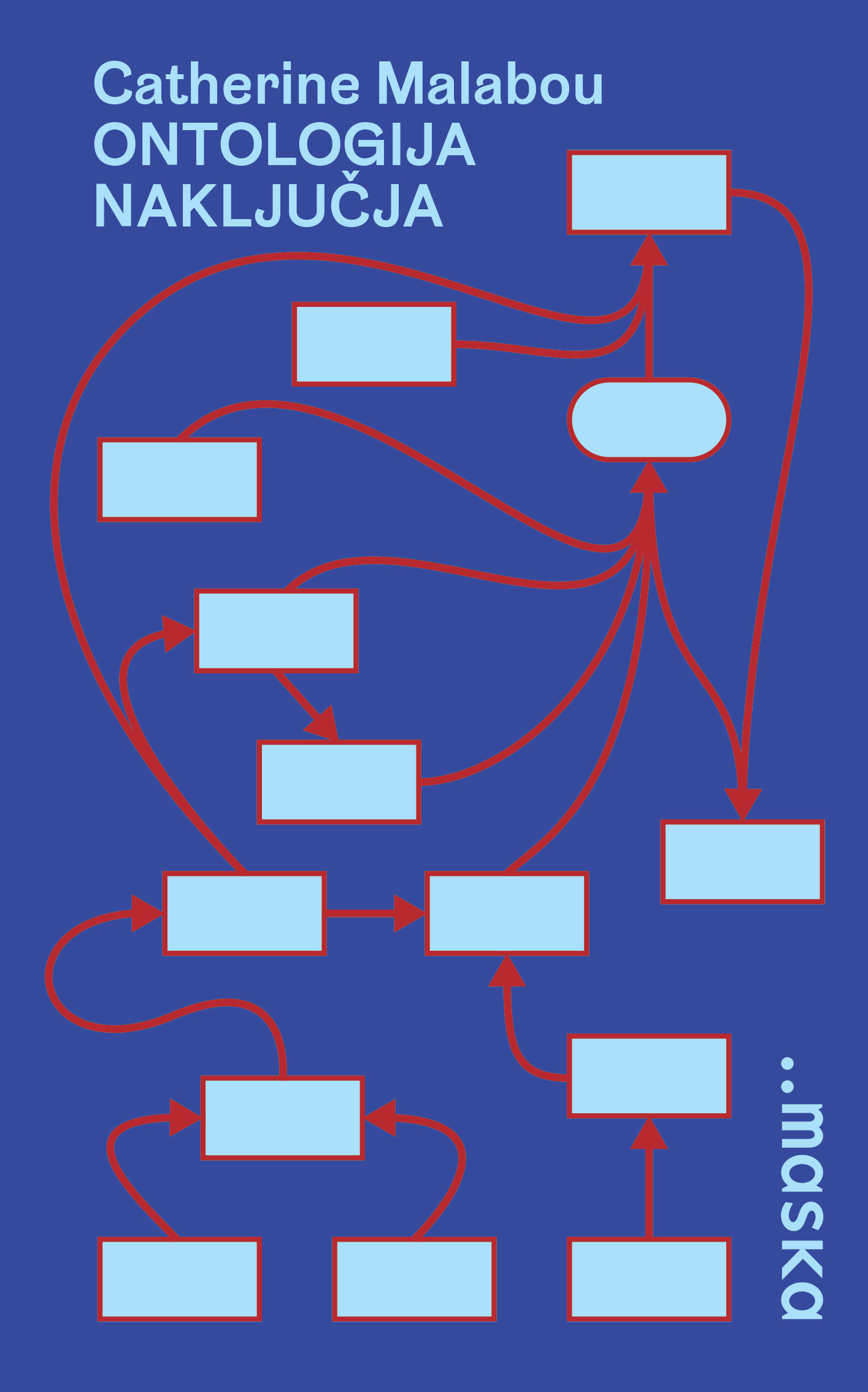Catherine Malabou: The Ontology of the Accident

In The Ontology of the Accident, one of her shorter essays, which certainly have the merit of presenting an explosive topic in an accessible way, Malabou tackles a topic that is extremely currenttopical in for contemporary philosophy: the accident. The accident is an event that happens beyond our anticipations and therefore surprises us, surprises us so much that – when an accident is at play, we have no choice – we have to transform ourselves in the face of this radical otherness, to transform ourselves into someone completely different, into another in whom we could no longer recognise ourselves. Accidents come upon us as trauma, an unexpected event that happens to us and we have no control over it, we cannot escape it, the only possible response is – transformation. How does it happen? Malabou gives this process a not so surprising name: destructive plasticity.
Mediakcije, book no. 24
Editors: Gregor Moder in Aleš Mendiževec
Translation: Iztok Ilc
© Maska, Ljubljana, 2023
The book was published in Slovenian with the support of the Slovenian Book Agency.
Excerpt from the Last Page
Recognising the role of destructive plasticity makes it possible to radicalize the deconstruction of subjectivity, to give it a new look. This recognition reveals that the power of annihilation lies within the very construction of identity, revealing a virtual coldness that is not only the fate of brain-damaged patients, schizophrenics or serial killers, but is the signature of a law of being that always seems to be on the verge of abandoning itself, of escaping itself. The ontology of modification must shelter within itself this particular type of transformation, which corresponds to the farewell of being to itself. A farewell that is not death, a farewell that comes to life, as the indifference of life to life, which in some cases manifests itself as survival. Today, all those who survive trauma, whether biological or political, show signs of this indifference. In this sense, we must consider the destructive plasticity of the brain as a hermeneutical weapon for understanding the contemporary faces of
violence.
About the Author

Catherine Malabou is a French philosopher and teaches in the Philosophy Department at the Centre for the Study of Modern European Philosophy at Kingston University, London, at the European Graduate School and in the Comparative Literature Department at the University of California, Irvine. She received her PhD from Jacques Derrida with a dissertation that became her first book, L’Avenir de Hegel: Plasticité, Temporalité, Dialectique (Hegel’s Future: Plasticity, Temporality, Dialectic), in 1996. She is known for the concept of plasticity, which she developed while reading Hegel’s philosophy, and later rethought in the field of modern neuroscience. Her work also deals with feminism and the concept of difference, psychoanalysis and the concept of trauma, cognitive science and the concept of artificial intelligence and, in recent works, the political idea of anarchism.
Photo: Magali Bragard